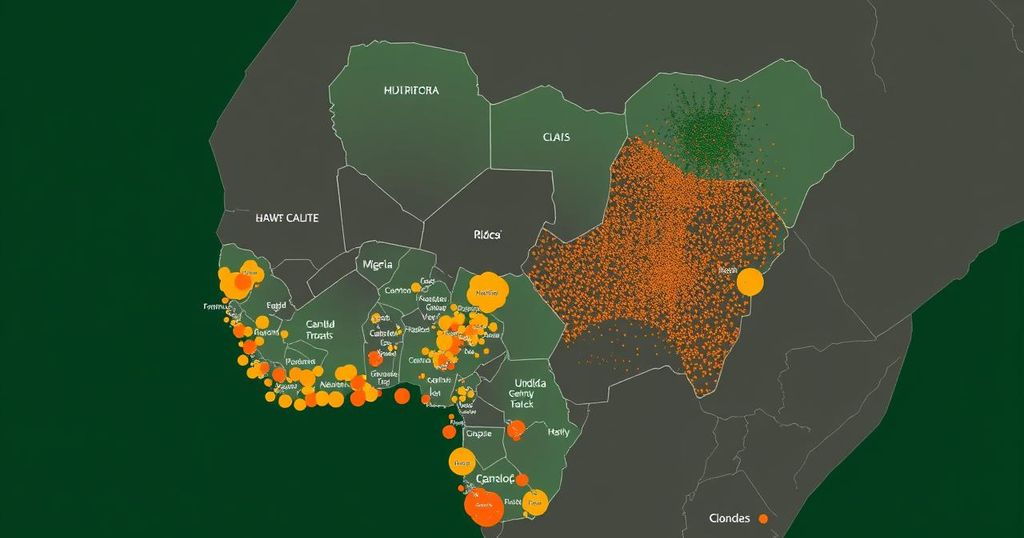Climate Change and Armed Conflict Fuel Malnutrition Crisis in Nigeria

Severe malnutrition rates among children in northeastern Nigeria have surged due to the intertwined effects of climate change and ongoing armed conflict. Reports indicate a 24% increase in malnutrition cases, with over six million individuals projected to face food shortages soon. The region’s reliance on subsistence farming has further exacerbated vulnerabilities to climate extremes and violence from armed groups.
The interplay of climate change and the persistent armed conflict in northeastern Nigeria has precipitated a significant rise in severe malnutrition cases, particularly among children. The International Committee of the Red Cross (ICRC) has reported a concerning trend of deteriorating food security in the Lake Chad region, with clinics documenting a 24% increase in malnutrition among young children compared to the prior year. Personal accounts, such as that of Rabiatu Jubrilla, illustrate the devastating effects of this crisis; her son, once thriving, succumbed to malnutrition after she ceased breastfeeding at 1 year and 9 months. The protracted conflict has been a principal contributor to the worsening food crisis, resulting in widespread displacement, destruction of livelihoods, and significant restrictions on agricultural activities. Paul Ezra, a resident of Madagali village in Adamawa State, expressed the challenges faced by local farmers, stating that access to farming areas has been severely compromised by the presence of armed groups. Furthermore, Yann Bonzon, Head of Delegation for the ICRC in Nigeria, observed that this alarming rise in food insecurity corresponds with a 58% escalation in violent incidents in the Lake Chad region in the year’s first half. Moreover, the region’s frequent reliance on subsistence farming exacerbates vulnerability to climate-related phenomena, such as erratic rainfall patterns. This year alone saw devastating floods that destroyed crops, bringing hopelessness following a prolonged dry season. Farmer Abubakar Bello Duhu reported dire consequences: “We have people who fainted and are at the hospital. Others have died because there is not enough to eat.” The ICRC estimates that over six million individuals in the Lake Chad area will face food shortages in the imminent months, underscoring the profound impact of both conflict and climate change on food security in Nigeria.
The intersection of climate change and armed conflict in Nigeria has emerged as a critical humanitarian concern, particularly in the northeastern region around Lake Chad. This area is notably affected by inadequate rainfall and extreme weather conditions, which, combined with ongoing violence from groups like Boko Haram, devastate agricultural productivity and food availability. With subsistence farming being the primary source of livelihood for many families, the dual challenges of climate variability and conflict pose severe threats to food security, contributing to a marked increase in malnutrition rates, especially among children.
In conclusion, the urgent situation in northeastern Nigeria encapsulates the dire consequences of climate change and armed conflict on food security. With soaring rates of malnutrition and over six million individuals expected to experience food shortages, immediate humanitarian intervention is essential to address the needs of affected populations. The testimonies of local residents and the alarming statistics provided by the ICRC highlight the intertwining challenges that families face in the Lake Chad region, necessitating a coordinated response from both governmental and international agencies.
Original Source: www.africanews.com






